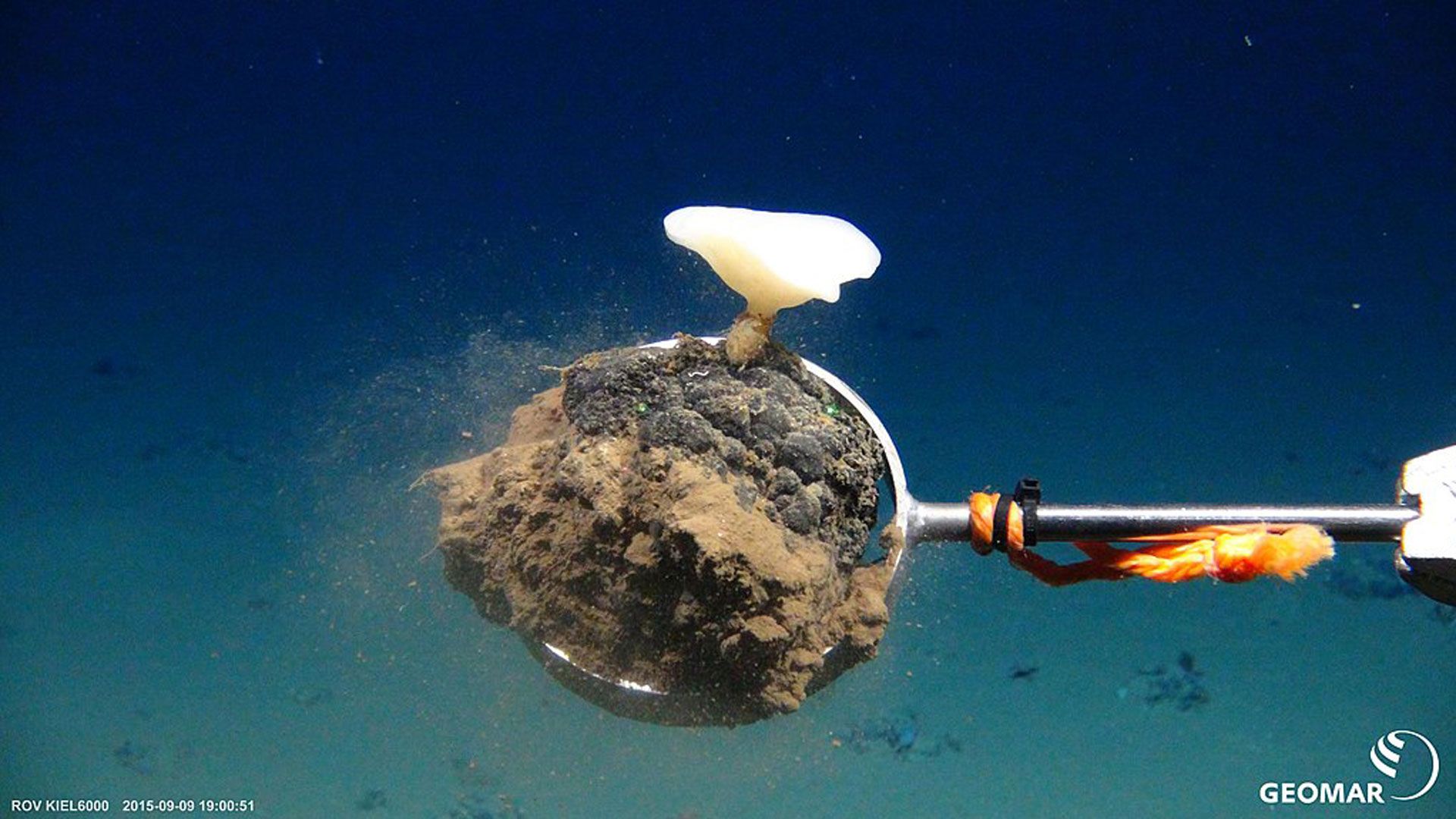The deep sea: strong environmental protection or commercial deep-sea mining?
The global demand for critical minerals for renewable energy and modern technologies, such as electric vehicles, is growing at rapid pace. The deep sea contains vast amounts of these minerals, including valuable raw materials such as cobalt, nickel, manganese and rare earths. Technological progress has made it possible to mine these resources that were inaccessible until recently.

The interest in mineral resources such as cobalt, nickel, manganese and rare earths present on and beneath the deep seabed – which is located beyond the limits of national jurisdictions (also referred to as the Area) – has grown at a rapid rate due to the demand for renewable energy and modern technologies such as electric vehicles. This Area, which is considered the common heritage of mankind, covers about two-thirds of the world's oceans. It is administered by the International Seabed Authority (ISA) based in Kingston, Jamaica. The ISA has a dual responsibility. It is tasked, on the one hand, with developing regulations (called the Mining Code) on the exploitation of minerals in the Area for the benefit of humankind in line with the United Nations Convention on the Law of the Sea (UNCLOS). On the other hand, the ISA is responsible for ensuring that the deep sea is protected from the harmful impact of such activities.
Switzerland is a member of the ISA, where it is represented by the Swiss Maritime Navigation Office (SMNO), which works closely with the Federal Office for the Environment (FOEN).
Swiss position and current developments at the ISA
Recent scientific findings suggest that deep-sea mining is not compatible with environmental requirements and that it poses a threat to the climate. However, the scientific data currently available is insufficient for a detailed assessment of the environmental impact of deep-sea mining in line with the precautionary principle, which makes it impossible to effectively protect the deep sea (scientific study).
In June 2023, the Federal Council therefore took the decision to support a moratorium on deep-sea mining. Deep-sea mining should be deferred until
- more in-depth scientific findings are available on its impacts
- effective protection of the marine environment against harmful impacts can be guaranteed.
This position is consistent with the Maritime Strategy 2023–2027 and Switzerland's evidence-based foreign policy.
A moratorium on deep-sea mining currently does not command a majority despite the growing support for it. The ISA is therefore continuing to work on a Mining Code to enable deep-sea mining. In 2024, progress was made on the Mining Code, but many questions still remain open and require further rounds of negotiations. The key issue is whether the Mining Code will be able to effectively protect the deep sea against the harmful impacts of deep-sea mining. Switzerland is supporting high environmental standards, a strict inspection regime and transparent processes during the ongoing negotiations on the Mining Code.
Links
Contact
Elisabethenstrasse 33
P.O.Box
Switzerland - 4010 Basel

